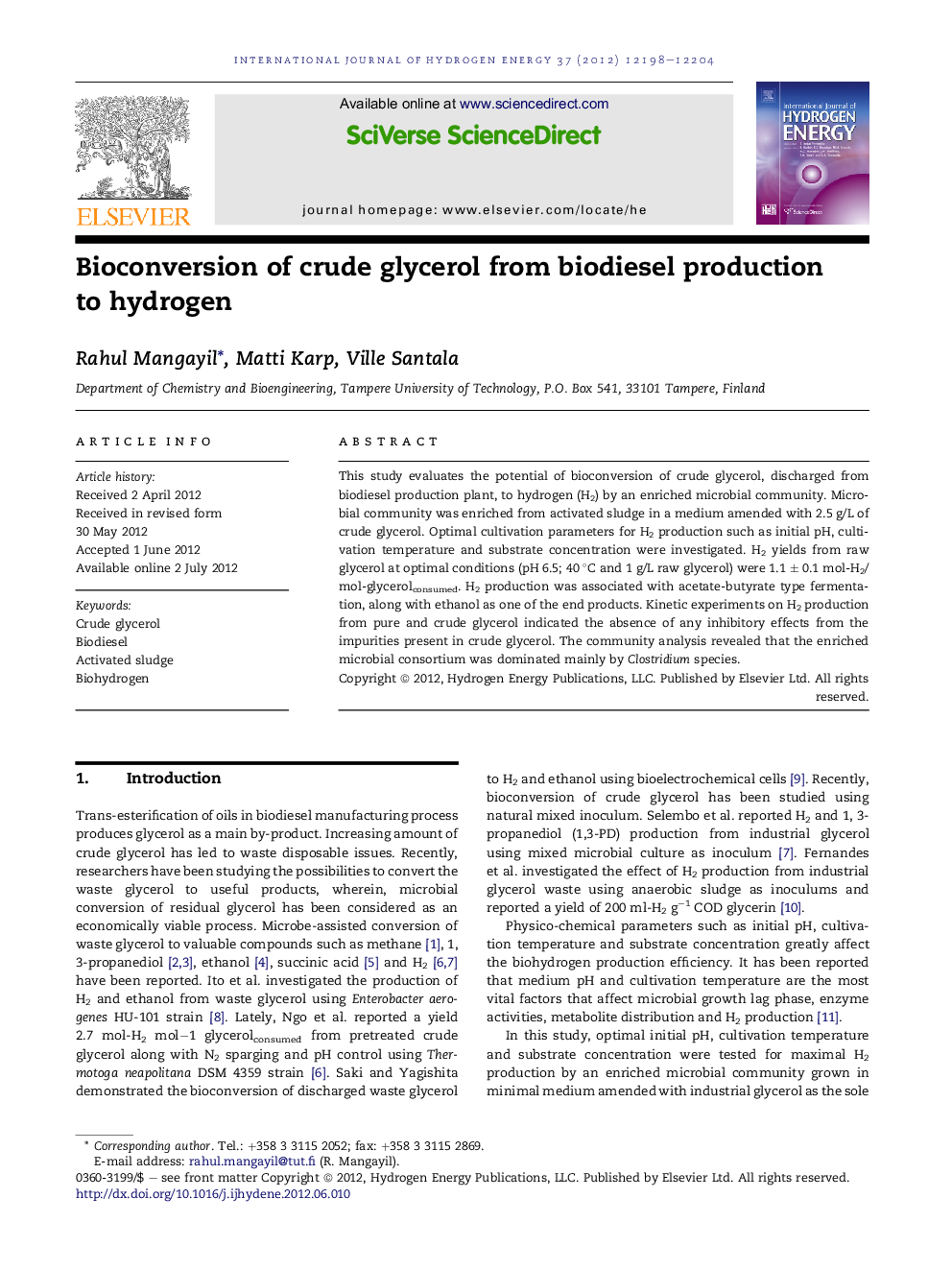| Article ID | Journal | Published Year | Pages | File Type |
|---|---|---|---|---|
| 1271054 | International Journal of Hydrogen Energy | 2012 | 7 Pages |
This study evaluates the potential of bioconversion of crude glycerol, discharged from biodiesel production plant, to hydrogen (H2) by an enriched microbial community. Microbial community was enriched from activated sludge in a medium amended with 2.5 g/L of crude glycerol. Optimal cultivation parameters for H2 production such as initial pH, cultivation temperature and substrate concentration were investigated. H2 yields from raw glycerol at optimal conditions (pH 6.5; 40 °C and 1 g/L raw glycerol) were 1.1 ± 0.1 mol-H2/mol-glycerolconsumed. H2 production was associated with acetate-butyrate type fermentation, along with ethanol as one of the end products. Kinetic experiments on H2 production from pure and crude glycerol indicated the absence of any inhibitory effects from the impurities present in crude glycerol. The community analysis revealed that the enriched microbial consortium was dominated mainly by Clostridium species.
► Microbial consortium capable of hydrogen production from crude glycerol was enriched from activated sludge. ► Optimization of physico–chemical parameters improved the substrate utilization efficiency by 34.95%. ► The H2 yield at optimal conditions was 1.1 ± 0.1 mol-H2/mol-glycerolconsumed. ► The microbial consortium was dominated by Clostridium sp. ► Kinetic experiments on H2 production indicated the absence of any inhibitory effects from the impurities present in crude glycerol.
